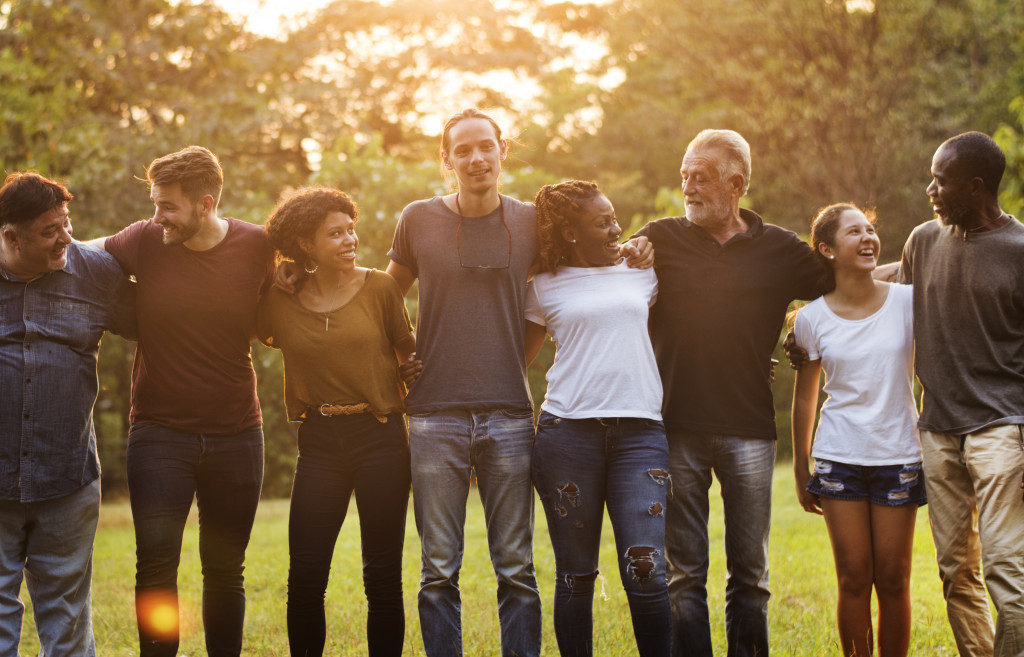- Social isolation can have a profound impact on both mental and physical health.
- Self-care, connecting with others, volunteering, and practicing gratitude are all positive steps to combat social isolation.
- Communities can help by providing platforms for members to connect, educational programs, outreach programs, social events, and resources.
- Counseling is also an option for those needing additional help dealing with social isolation.
Social isolation has a profound effect on our physical and mental health. Studies have linked feeling isolated and disconnected from one another to adverse psychological, cognitive, and physiological effects. Of course, everyone experiences social isolation differently—but it’s essential to understand how it affects us all. So here’s a dive into the impact of this phenomenon.
The Effects of Social Isolation on Mental Health
Social isolation has a significant effect on one’s mental health. It can create feelings of depression, anxiety, and loneliness. Feeling disconnected from others can lead to an inability to recognize and express emotions appropriately and an increased risk of developing unhealthy coping mechanisms such as substance abuse or self-harm. Additionally, studies have linked social isolation to increased suicidal thoughts and behavior.

The Effects of Social Isolation on Physical Health
Social isolation isn’t just bad for your mental health—it can also devastate your physical health. Studies have linked feeling isolated with a higher risk for cardiovascular disease, stroke, and weakened immunity, among other conditions. In addition, people who feel socially isolated are more likely to experience chronic pain than socially connected people. Moreover, they are more vulnerable to all kinds of diseases, which can worsen over time.
Combatting Social Isolation
Fortunately, there are many ways you can combat social isolation in your own life and the lives of those around you:
Self-care
The first thing to consider is ensuring you’re taking care of yourself. Make time for self-care activities such as meditation, exercise, and journaling. Connect with yourself first before reaching out to others.
Connect with Others
Finding ways to stay connected can help combat social isolation. For example, contact friends and family via phone or video chat. Join virtual support groups, or even just reach out to your neighbors from a safe distance.
Volunteering
Volunteering is another excellent way to find connections and fight social isolation. It can be anything from helping at a local food bank to offering virtual tutoring services for needy students. Look for opportunities that match your interests and skill set.
Practicing Gratitude
Gratitude is a powerful tool for improving your mental and emotional state. Practicing gratitude helps you to focus on the good things in life rather than feeling overwhelmed by the negative, which can help reduce feelings of isolation. Take time each day to be thankful for what you have, no matter how small.

How Your Community Can Help Against Social Isolation
You don’t have to also deal with it alone. Your community can help you if you need it. Here are ways to do that:
Community Platform
It’s good to have an online platform where people can connect. A fully-brand online community platform can offer a safe and dedicated space for members to share stories, feelings, advice, and experiences. Moreover, it can help to build authentic relationships between members, giving them a sense of connection and belonging.
Educational Programs
The community can also organize educational programs such as workshops or classes to help people learn new skills and socialize with others. This helps to facilitate connections among fellows in the same age group who share similar interests.
Outreach Programs
Set up outreach programs to reach out to people who may feel isolated and offer help. This could include providing food, clothing, or medical services if needed. Social Events encourage community members to unite through movie nights, book clubs, game nights, and more. These are fun ways to stay connected while observing social distancing guidelines.
Providing Resources
Your community can provide resources like mental health workshops or one-on-one counseling sessions to help those in need. Additionally, regular check-ins with friends and family members can go a long way toward providing support.
Counseling
Lastly, counseling is always an option for those feeling isolated and needing additional help. Professional counseling can offer invaluable guidance on how to deal with social isolation, as well as other life challenges.
Social isolation is a common problem—but it doesn’t have to be. With the right strategies, you can fight social isolation and promote better mental and physical health for yourself and those around you. Make sure to take care of yourself, reach out to others, and make a real difference.

